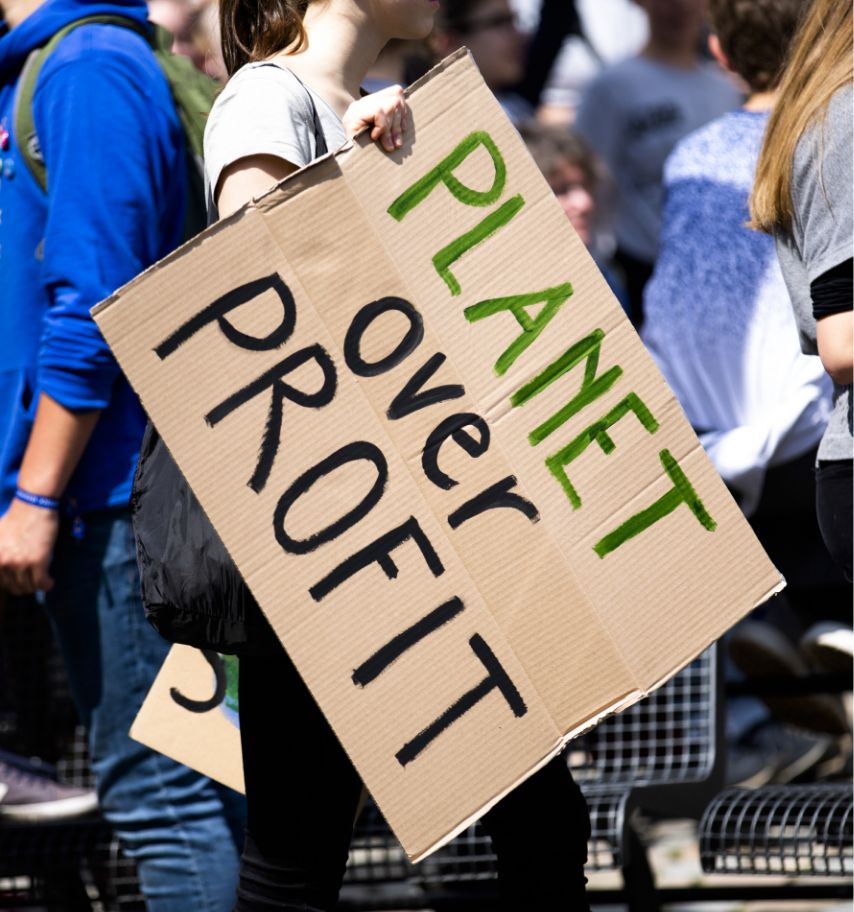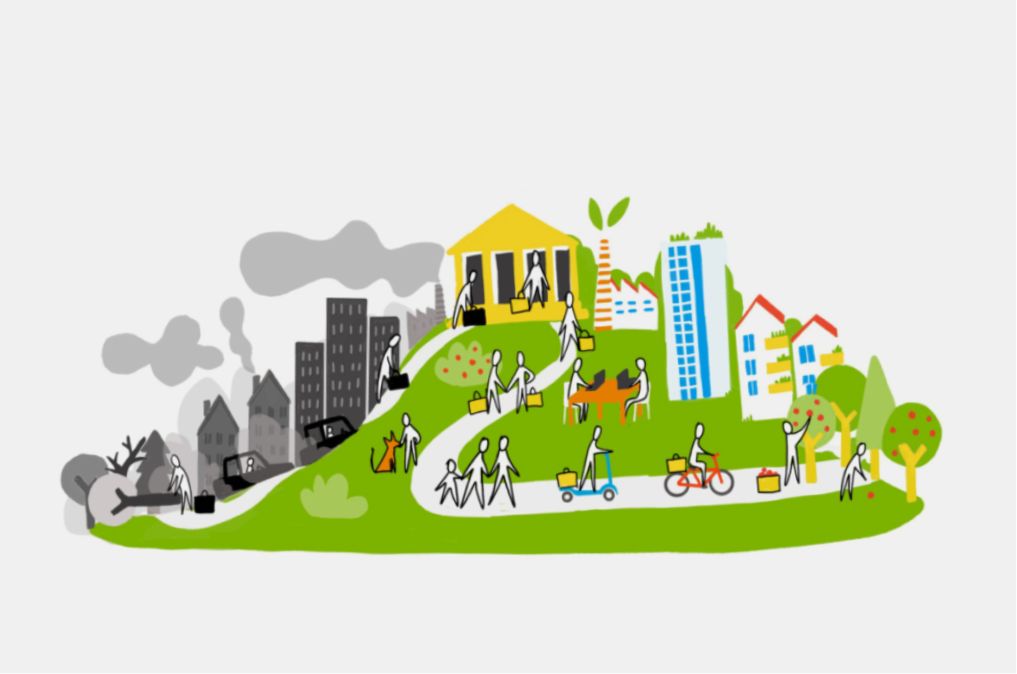Climate, biodiversity and the economy
The climate crisis, loss of biodiversity and worsening environmental breakdown are directly linked to our economic systems. Here’s how:
In today’s world, the success of a nation is often measured by a single yardstick: the size and growth of their economies. This measurement, known as Gross Domestic Product (GDP), has become the dominant way of assessing the health and progress of a country. However, relying solely on GDP as a measure of success fails to capture the full picture of societal wellbeing and environmental sustainability.

Since the mid-1900s we’ve seen a significant increase in GDP across the globe but unfortunately, this economic growth has come at considerable cost to both people and planet. We’re now witnessing the alarming consequences of the climate crisis such as global warming, the melting of ice caps and glaciers, rising sea levels, warmer oceans, increased CO2 and greenhouse gas emissions, acidification of the oceans, and extreme weather events.
We need to capture the true cost of doing business
Fact: If you took the balance sheet of the top S&P 500 businesses and looked at their balance sheet from an ecological perspective, 70% would be bankrupt.
The main purpose of the economy today is to grow and make profit, and extracting the planet’s resources without paying the real cost and without regenerating these resources has been immensely profitable (at least in the short term). Governments continue to subsidize fossil fuels, providing as much as $5.9 trillion, more than double the sorts of investments needed to keep the planet below 2 degrees centigrade, as urged by the Paris agreements.
Our economic system itself has now become uneconomic, and is undermining our planetary health, but we have a choice. We designed our economy this way, but we can choose to set up differently.
Climate change is now a part of our daily lives. Yet all earth systems processes are now heavily perturbed by our economies, and climate change is just one of them.
We are overshooting the planetary boundaries, critical for maintaining the stability of the Earth system as a whole. Deforestation and the loss of biodiversity, including pollinators, the pollution of air and water, soil erosion and the degradation of marine systems, are all affecting the quality of the air we breathe, the water we drink, the food we produce, our exposure to infectious diseases, and the habitability of the places where we live.
Measuring success requires moving beyond GDP toward wellbeing indicators and metrics.
GDP does not consider the impacts of our economic activity (climate change, biodiversity loss, pollution). The central needs of Nature should be measured by the capacity of the economy to cherish, restore, and protect our natural environment and the species we cohabit the planet with.
Wellbeing economies repurpose the economy toward human and ecological wellbeing and away from profit maximization. True cost accounting can help scale down harmful investments (fossil fuels)can help scale down. Transforming finance can scale up purpose oriented social and environmental objectives for example with Norway´s Social Wealth Fund.
WELLBEING ECONOMY EXAMPLES
Thanks to the Future Generations Act launched in 2015 in Wales, policy decisions are based on what’s best for future generations, rather than profit or growth. For example a highway project was vetoed because it went through vital wetlands (even though it might have increased GDP).
Learn MoreCosta Rica has .3% of GDP of the United States yet they have a longer life expectancy are also nearing 100% renewable energy vs. US 13%.
Learn MoreNew Zealand launched a Wellbeing Budget in 2019 where decisions on investing and funding consider environmental and social factors.
Learn MoreThere is a group of regional and national governments who are working to go beyond GDP to create new economic frameworks and policies that put people and the planet first.
Learn MoreEnvironmental partners
WEAll is partnered with a number of environmental organizations to help shift the conversation on the environment and our economy.
Wellbeing economies look upstream at the systemic causes of climate change and loss of biodiversity in the economic systems and design the economy in a way that stops harm from happening in the first place. More circular and regenerative economies design out waste and pollution, keep products and materials in use longer, and regenerate natural systems. Agroecological approaches to farming and food production including organic farming, agroforestry and permaculture can restore soil quality, and help regenerate ecosystems.
Economy And Climate Resources
The world
we envision
In a Wellbeing Economy, our definition of societal success shifts Beyond GDP growth to delivering shared wellbeing. This involves a fundamental systems change. A good economy is when the rules and incentives are designed to ensure everyone has enough to live in comfort, safety, and happiness. When people feel secure in their basic comforts and can use their creative energies to support the flourishing of all life on this planet.
When we thrive in a restored, safe, and vibrant natural environment because we have learned to give back as much as we are given. When we have a voice over our collective destiny and find belonging, meaning and purpose through genuine connection to the people and planet that sustain us.



